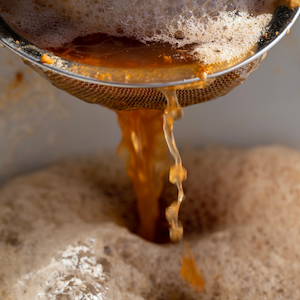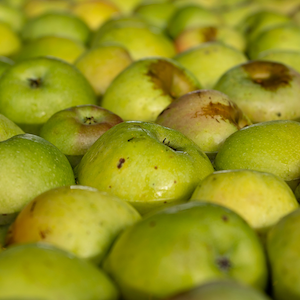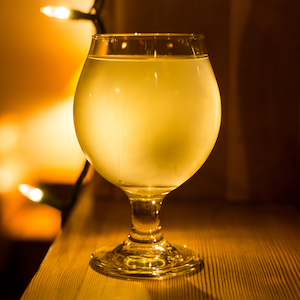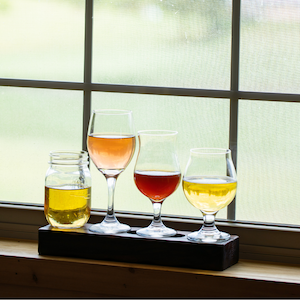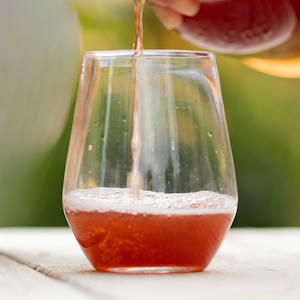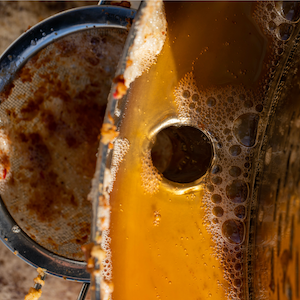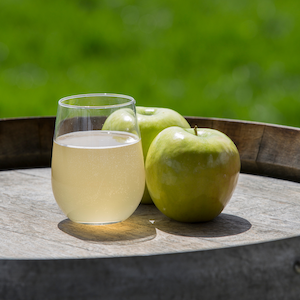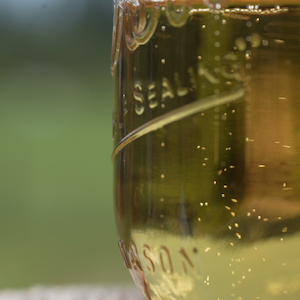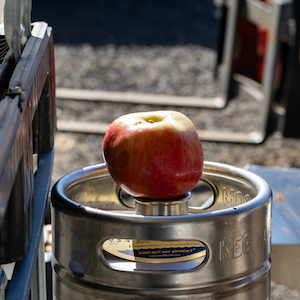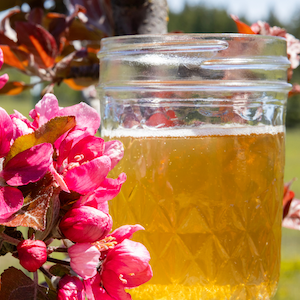The Science & Art of a Balanced Cider: A Workshop with the Cider Institute
Price: $90
Speakers: Brighid O’Keane, Steven Trussler, Chris Gerling, Nicole LeGrand Leibon, Kira Bassingthwaighte
Date & Time: Wednesday, February 5, 8:30 AM – 12:30 PM
Finding balance or harmony makes a good cider great and is the goal of every cidermaker. In this interactive session, we’ll explore the art of finding balance and the science that cidermakers use to get there. Through facilitated tastings and small group discussions, participants will explore the impact of acidity, sweetness, tannins, and aromatics on cider balance and learn more about their fellow cidermakers’ philosophies and experiences in the universal search for harmony. This workshop is open to all CiderCon® attendees.
Topics include:
- An introduction to sensory science and how it’s applied to cider and perry production
- What is harmony, balance, and complexity in cider and perry?
- Different types of sweetness and sourness and production methods to increase or decrease the perceptions of each.
- The dryness debate!
- Role of astringency and bitterness in balance, and the differences and interactions between them.
- Role of alcohol and yeast in bitterness.
- Production tips that increase or decrease bitterness and astringency.
- Different types of aroma compounds and precursors in juice.
- Effects of pH, temperature, and yeasts on fruit/phenolic aroma balance.
- Techniques for aromatic additions pre- and post-fermentation.
Pressing Ahead: Optimizing Your Belt Press for Success
Speakers: Remo Trovato, Nathan Riddell
Date & Time: Thursday, February 6, 10:30 – 11:45 AM
Unlock the full potential of your belt press and elevate your cider production! In this expert-led masterclass, we’ll explore how to optimize your belt press for maximum juice yield and top-quality results. You’ll gain practical insights into maintenance, troubleshooting, and fine-tuning your press, all grounded in real-world experience. Whether you own a belt press, or are considering adding one to your operation, this session will equip you with the knowledge to take your juice extraction to the next level.
Lab Testing: Maximum Impact with Minimum Effort
Speakers: Steven Trussler
Date & Time: Thursday, February 6, 10:30 – 11:45 AM
This presentation will explore practical strategies to optimize chemical and microbiological testing by minimizing costs and time while maximizing the usefulness of results to the production process. Topics will include: mapping lab testing onto your production process, calculating costs, and deciding between in-house and commercial lab testing. Attendees will come away with an action plan for determining the optimal types, frequencies, and methods of lab testing for their production process. Sponsored by the Cider Institute of North America.
Does Cider Need Tannin?
Price: $12
Speakers: Tom Oliver, Kari Williams, Christine Walter, Scott Katsma
Date & Time: Thursday, February 6, 10:30 – 11:45 AM
What is tannin, where does it come from and why it is needed for flavor and balance in cider? What are the challenges to growing tannic cider fruit varietals? How do you best balance the holy trinity of tannin, acidity and sweetness in cider making? And what is the consumer’s view and the benefit to them of tannin? Attendees will gain an appreciation of the integral part that tannins play in quality cider and the importance of this pillar of cidermaking. Sponsored by the Cider Institute of North America.
Unique Stability Considerations for Fruited Ciders
Speakers: Dr. Nichola Hall
Date & Time: Thursday, February 6, 2:00 – 3:15 PM
Fruited ciders present unique microbial, colloidal, and shelf-stability challenges over working with just apples. For example, grapes and wine contain tartaric acid (not found in apples), which can precipitate as crystals and appear as glass shards to unfamiliar consumers. Raspberries contain high concentrations of precursors that can be used by Brettanomyces to produce vinyl phenols (barnyard aromas). Concentrates and purees can have very high pectin levels which may cause clarification and filtration issues. Join us for an exploration of challenges unique to fruited ciders and practical strategies for keeping things stable to prevent off-odors, visual flaws, and refermentation. Sponsored by the Cider Institute of North America.
Keeving: Basics and Practical Applications
Price: $12
Speakers: Dave Takush, Dion Stepanski, Yann Gilles, Steve Selin
Date & Time: Thursday, February 6, 3:45 – 5:00 PM
Explore the traditional cidermaking technique of keeving in this focused session. Learn the core principles and practical applications of keeving across various production scales. The panelists will provide insights into their keeving methods, share key techniques, and discuss the impact on cider quality. The session will also feature a tasting of different keeved ciders, allowing attendees to experience the results of this unique process firsthand. Gain valuable knowledge on how to effectively implement keeving in cider production. Sponsored by the Cider Institute of North America.
Sustainability Solutions for Small Cideries
Speakers: Brighid O’Keane, Andrew Byers, Nicole Todd, Nate Watters
Date & Time: Thursday, February 6, 3:45 – 5:00 PM
Small cideries are uniquely positioned to adopt environmentally friendly practices that suit their scale. In this session, we’ll dive into inspiring case studies showcasing how these cideries are implementing sustainable strategies in both their orchards and production processes. Discover practical solutions that can help reduce environmental impact while enhancing the quality of cider. Join us to learn how small choices can lead to big changes for a greener future in cidermaking! Sponsored by the Cider Institute of North America.
Brewer’s Yeast in Cider for Unique Flavor & Branding
Price: $12
Speakers: Brian Wing, Andy Diacetis, Jen Curs
Date & Time: Friday, February 7, 10:30 – 11:45 AM
This session will explore how new yeast strains are developed and brought to market. Trials were developed using nine different brewing yeast strains on bulk apple juice. The audience will learn about the analytical results and tasting data from these ciders so they can take home ideas for their own experimentation. There will be three ciders to taste during the session made with brewing yeast strains. Sponsored by the Cider Institute of North America.
A Practical Guide to Avoiding Reduction
Speakers: Sigrid Gertsen-Schibbye
Date & Time: Friday, February 7, 2:00 – 3:15 PM
Are you new to cidermaking or looking to brush up on your skills? Wondering why your cider sometimes smells like eggs, farts, or rubber? Welcome to this accessible and informative session on reduction in ciders. We’ll explore what causes the off-putting aromas of reduction and, most importantly, how you can prevent your cider from going stinky. You’ll learn practical tips and tricks to keep your cider smelling fresh and tasting delicious, whether you’re preparing your juice, managing a fermentation, or troubleshooting with a finished cider. We’ll keep things light, engaging, and easy to understand. Even better, you’ll leave with a toolbox full of ideas to banish stinky ciders from your cellar forever. Sponsored by the Cider Institute of North America.
The Paradigm of Natural Cider Production
Price: $12
Speakers: Haritz Rodriguez, Jasper Smith, Richard Yi
Date & Time: Friday, February 7, 2:00 – 3:15 PM
The definition of natural cider varies depending on how you look at it. In Spain it is regulated by law, which perfectly defines what can be considered natural cider. However, the concept of natural cider goes beyond a style and differs in other places, depending on the philosophy of each cider maker. Biodynamic agriculture, organic agriculture, no addition of sulfites (at any point in the process?), spontaneous fermentation without added yeasts, no stabilization… What’s the paradigm of natural cider? In this debate we want to explore the limits of natural cider and define the paradigm. What is it that all those producers want the consumer/purchaser to understand by the word natural and what is it that the consumer thinks they are purchasing when buying or asking for “natural cider”? Sponsored by the Cider Institute of North America.

